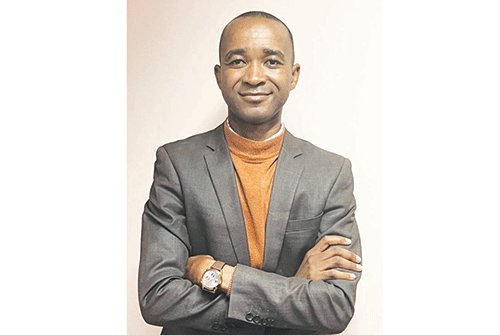Captain Nelson Tuhafeni Kalangula
In my last opinion piece, I wrote about the role of the advisor to our government leaders, with the sole aim to clarify on their key role in helping the country to make cost saving decisions.
In the latest development, it was reported that up to 142 Namibians flew to the United Arab Emirates (Dubai) for the COP28 summit. The trip is in respect of global renewable energy efficiency, (with a high concentration on the hyped-up green hydrogen). The idea is green, however, the biggest questions to ask are: Have our country’s challenges, particularly during the Covid-19 pandemic, not taught us anything about overspending? As if we do not have a bloated costly administration team, we sent many associates to UAE. We need to understand the importance of running a government with cost saving in mind; our rate of borrowing has been off the roof as with our spending of revenue. What is happening here? Where are the advisors to our government? or is the government simply on auto-pilot and simply enjoyed by associates at the cost of the overall taxpayers?
There are various ways a country can save money and spend less, both on the individual and systemic levels. Here are some strategies:
Individual spending:
Budgeting and tracking: Encouraging citizens to create budgets and track their spending helps them identify areas where they can cut back.
Tax breaks for saving: Implementing tax breaks for saving, like contributions to retirement accounts, incentivises saving behaviour.
Promoting frugality: Public service campaigns and initiatives can normalise and even celebrate frugal living, like cooking at home, buying used goods, and prioritising experiences over material possessions.
Financial literacy programmes: Equipping citizens with basic financial knowledge helps them make informed decisions about saving, investing and debt management.
Government spending:
Zero-based budgeting: It is on record that some ministries return money that was budgeted for their use, and as result, they get allocated more in the next financial year. Instead of incremental budgeting, where agencies receive the same or slightly more than the previous year, zero-based budgeting requires justification for every expense, leading to more efficient allocation.
Prioritisation and cost-benefit analysis: Carefully evaluating programmes and spending based on their effectiveness and return on investment helps identify areas for cuts or reallocation.
Negotiating better deals: Government agencies can leverage their buying power to negotiate better deals on goods, services, and contracts. To do this, we must select our negotiating teams based on merit if we want better outcomes and not those who negotiate for self-gain and interest.
Eliminating waste and duplication: One of our biggest leakages of money is the duplication of programmes by entities such as state-owned enterprises/parastatals, which takes away work for civil servants. Streamlining bureaucracy, consolidating overlapping programmes, and tackling corruption can free up significant resources.
Tax reform: Members of Parliament should be hard at work debating issues such as closing loopholes, taxing luxury items, or implementing progressive taxation, this can generate additional revenue without necessarily increasing the overall tax burden.
Investing in preventative measures: Investing in areas like healthcare, education, and infrastructure can save money in the long run by reducing future costs associated with social problems. Especially at this time, we have shown signs of being out of line when it comes to prioritising for the citizens to benefit.
Public-Private Partnerships (PPP):
Leveraging private sector expertise: Partnering private companies for infrastructure projects, public services, or social programmes can access innovation and efficiency gains.
Concessions and user fees: Implementing user fees for specific services or concessions for public assets can generate revenue without direct government spending.
Philanthropy and volunteerism: Encouraging philanthropy and volunteerism can supplement government funding for social programmes and community initiatives. Wealthy Namibians should make it fashionable to build schools, clinics, sports fields, and community centres in their hometowns or place of residence. This forms part of corporate and social responsibility.
It’s important to note that there’s no one-size-fits-all approach, and the best strategies will depend on the specific country’s economic situation, cultural norms, and political climate. Additionally, finding the balance between saving and spending is crucial. While excessive spending can lead to debt and instability, insufficient spending can stifle economic growth and hinder essential services.
Ultimately, saving money and spending less requires a multi-pronged approach that involves individual behavioural change, effective government policies, and collaborative efforts between the public and private sectors. One of the main reasons tactics like FIMA are not welcomed by the public servants is because the trust and confidence in our government leadership is reduced based on its previous dealings and track record of mismanagement of public funds via the established high-salary entities.
It thus creates doubt in our country’s leadership when we witness wrongdoing and simply do nothing about it, (Being quiet about injustice, means supporting it). How long will it take before our leaders recognise their faults and apply corrections? Perhaps the 2024 election will give us an indication on the next step forward. Namibia is a wealthy country, and our people deserve better. Are we leading by example?
*Captain/Flight Lieutenant Nelson Tuhafeni Kalangula is a former Namibian Air Force helicopter pilot, an Aviation Safety and Aircraft Accident investigation certificate holder, author in the making, with a Bachelor of Commerce Honours and B-Tech Business Administration.


